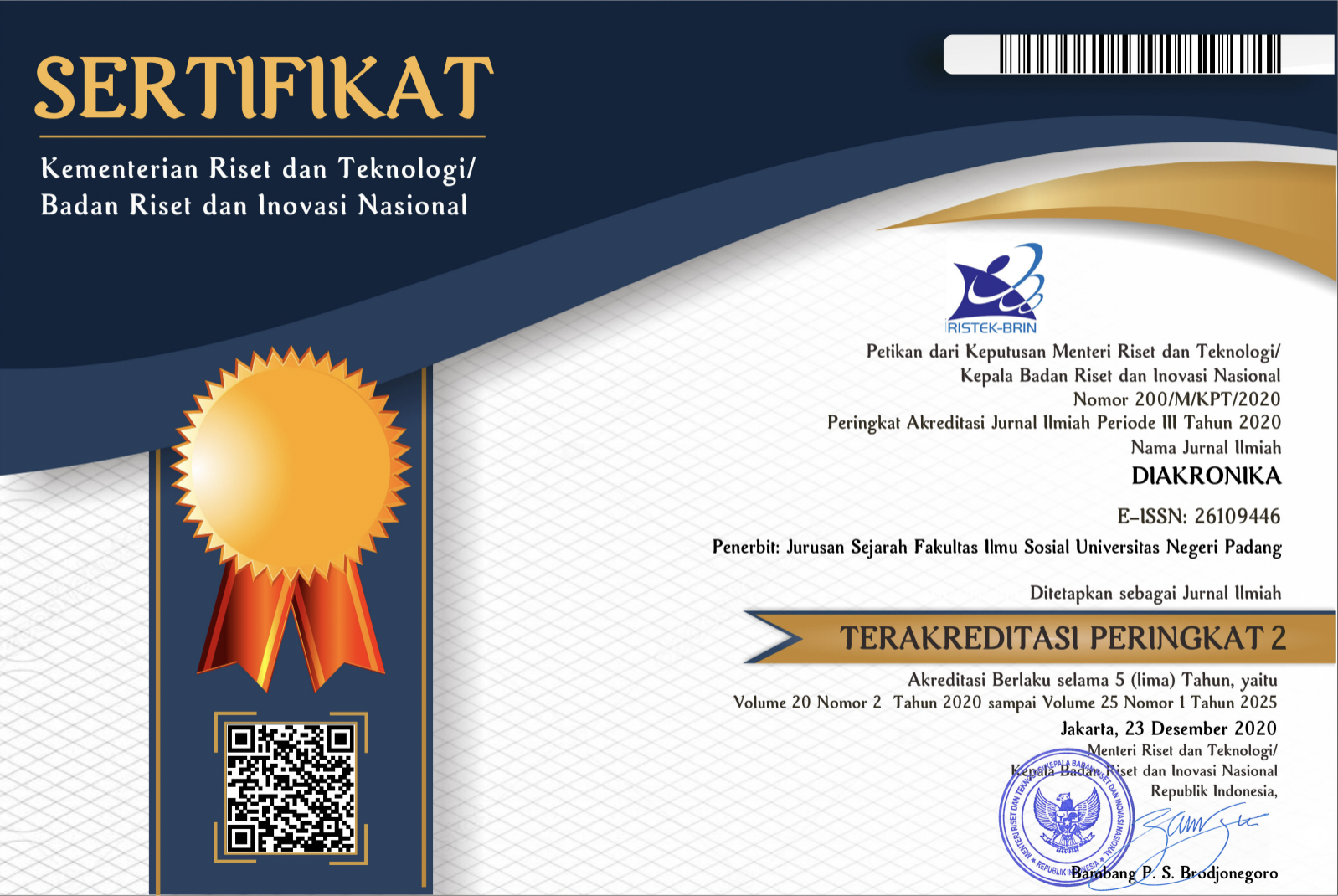Kontekstualisasi Fungsi Bagas Godang dan Sopo Godang Sebagai Sumber Pembelajaran Sejarah Lokal
Abstract
This article aims to describe and analyze the functions of Bagas Godang and Sopo Godang as a source of learning the local history of students in the School. Basically the function of Bagas Godang and Sopo Godang is an identical symbol of civilized society as a center of government, and custom development, as well as education and character building centers Naposo Nauli Bulung (youth and young women) in the Land of Mandailing. The existence of the functions of Bagas Godang and Sopo Godang as culture heritage Mandailing plays an important role in the transformation of the philosophical values of Dalihannatolu in Naposo Nauli Bulung (youth and young women) in the context of Globalization Now. The method used in this study is the Historical method through several stages, namely: (1) Heuristics, (2) criticism, (3) interpretation, (4) Historiography. While the techniques used to obtain data through field studies are interviews in a structured and in-depth manner, analyzing various source books, newspapers, and archival material related to the issues discussed. The results showed that the content and constants of Bagas Godang and Sopo Godang were relevant as sources of learning local history in schools. Through the contextualization of learning as follows: first, the utilization of the functions of Bagas Godang and Sopo Godang as culture heritage in learning the local history of students through field studies, secondly, the Constellation of the functions of Bagas Godang and Sopo Godang in learning local history through the use of used goods as an integrated creative media character values, third digitizing the function of Bagas Godang and Sopo Godang as a heritage culture in learning the history of local students in high school.




